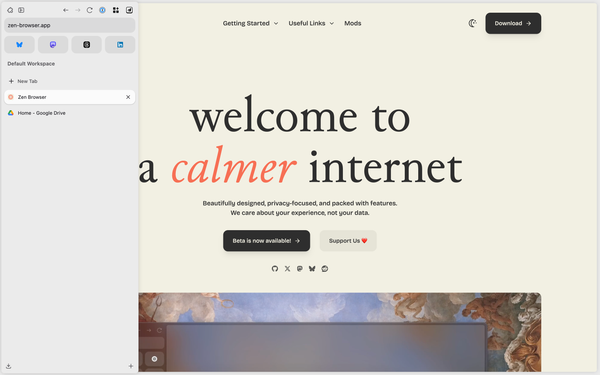
Using technology skills for positive change
Let's help build the world we want to see.

From self-hosted WordPress to managed solutions

How community-first thinking can help newsrooms survive AI

An open source project aimed at making medical research easier.

After Arc's pivot to AI left power users behind, I found the browser I actually wanted.

How self-tracking became self-incrimination

How to think about vendors, technology, and power

Designing a values-centered life from first principles.

Building community-driven public media for the post-federal funding era.

How to transform the internet's most toxic platform into essential infrastructure.
Ben Werdmuller explores the intersection of technology, democracy, and society. Always independently published, reader-supported, and free to read.

An open source project aimed at making medical research easier.
A new survey suggests that scientists vastly prefer Bluesky to X - and to its other alternatives.
"Sixteen of the 50 biggest news websites in the UK are now using a “consent or pay” model to allow users to pay to reject personalised advertising or even avoid ads altogether." It should be illegal.
"Focus on flows and relationships, not products or services." An argument for systems thinking instead of design thinking or breakthrough innovation.
"Obviously, any campaign that used only that AI-generated data would miss the mark — instead of looking at the views of real respondents, it would be looking at a funhouse mirror reflection of a demographic cooked up by a language model with no access to actual data."

After Arc's pivot to AI left power users behind, I found the browser I actually wanted.
"The 19th developed seven key initiatives to guide our priorities for the next three years." Doing this work in public is such a smart move.

From startup CTO to newsroom leader: Ask me anything.
"Now, nearly two years and more than 250 assassinations later, I can count the names of the living journalists in Gaza I follow on one hand."
"Open Source runs much of the world's critical infrastructure. It powers government services, supports national security, and enables everything from public health systems to elections. This means governments must help fund Open Source."
"Artificial-intelligence startup Perplexity offered to purchase Google’s Chrome browser for $34.5 billion as it works to challenge the tech giant’s web-search dominance."

How self-tracking became self-incrimination